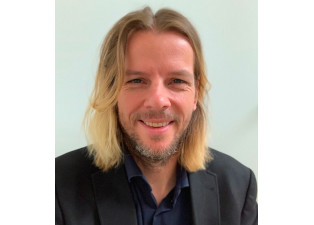
04.07.2023 - Distinguished Lecture Series: Björn W. Schuller (Imperial College London/University of Augsburg)
We are pleased to announce our upcoming Distinguished Lecture Series talk by Björn W. Schuller (Imperial College London/University of Augsburg)! The talk will take place in person on July 4th, in room UN32.101. Professor Schuller will also be available for meetings on July 4th. If you are interested in scheduling a meeting, please email .
Björn W. Schuller received his diploma, doctoral degree, and habilitation in Machine Intelligence and Signal Processing all in EE/IT from TUM in Munich/Germany. He is Full Professor of Artificial Intelligence and the Head of GLAM at Imperial College London/UK, Full Professor at the University of Augsburg/Germany, and co-founding CEO/CSO of audEERING. Previous stays include Full Professor at the University of Passau/Germany, Key Researcher at Joanneum Research in Graz/Austria, and the CNRS-LIMSI in Orsay/France. He is a Fellow of ELLIS, Fellow of the IEEE, Fellow of the BCS, Fellow of the ISCA, Fellow and President-Emeritus of the AAAC, and Elected Full Member Sigma Xi. He (co-)authored 1,200+ publications (h-index=100+), and consults companies such as Barclays, GN, Huawei, or Samsung.
Title: Every time we fire an expert, the performance goes up? From features to foundation models
Every time we fire an expert, the performance goes up? From features to foundation models
Frederick Jelinek’s famous claim whenever he “fires a linguist, the performance of the speech recognizer goes up” makes one wonder if we could transfer and generalize it these days to best entirely excluding (human) experts from the equation when it comes to machine learning. This talk will base the according discussion on the example of spoken language processing. It will guide through the field’s evolution from expert-crafted features to self-learnt representations, to self-learnt (neural) architectures, ultimately leading to emergent intelligence of foundation models as the most recent game changer. This evolution well manifests the increasing exclusion of hand-crafted bits and pieces, which are today mostly found (only) in the labelling of data where this is needed. The talk will therefore raise the question if expert knowledge still should and if so best could be integrated in state-of-the-art and oncoming such systems. So ultimately, will the answer be to train even bigger models on even bigger data in a purely data-driven manner, or will potentially cooperative reinforced learning of real-world tasks starting from imitation learning be the answer to reach even more performant systems?
Date: July 4, 2023
Time: 17:30
Place: Universitätstraße 32.101, Campus Vaihingen of the University of Stuttgart.
Looking forward to seeing you all there! No registration necessary.


